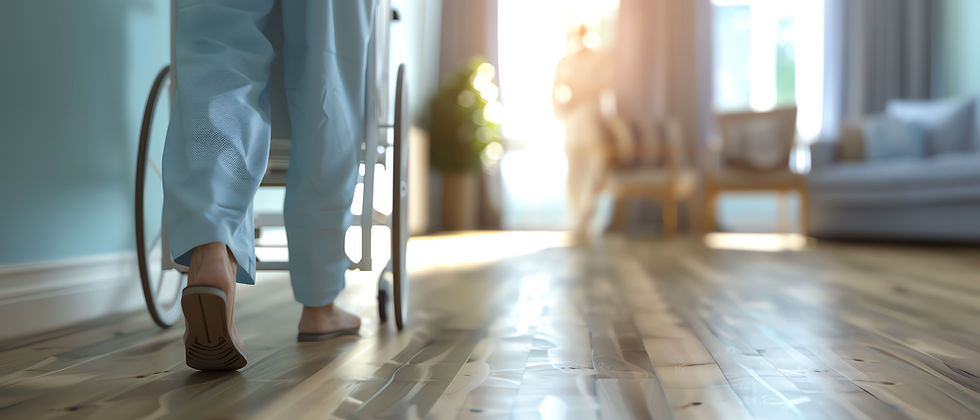
Nursing Home Neglect Lawyers In New York
Nursing Home Neglect Lawyers - The decision to place a loved one in a nursing home is never easy. It often comes after a period of intense deliberation, weighing the needs of your loved one against the realities of providing care at home. You place your trust in the facility, hoping they will provide a safe, nurturing environment where your loved one can receive the attention and support they need. But what happens when that trust is shattered? When the place meant to provide comfort becomes a source of fear and pain?
Sadly, neglect and abuse in nursing homes are more common than many realize. As a vigilant family member, you are the first line of defense for your loved one. This post equips you with the knowledge to recognize the signs of trouble and take action to protect those you care about.
Key Signs That Your Loved One May Be in Danger
Neglect and abuse can manifest in various ways, both subtle and overt. Here are some red flags to watch for:
Physical Indicators:
Unexplained Injuries: Frequent bruises, cuts, burns, or fractures that seem inconsistent with the explanations provided by the staff. These injuries might be accompanied by vague or changing stories about how they occurred.
Pressure Sores: Also known as bedsores or decubitus ulcers, these are a common sign of neglect. They develop when a resident is not repositioned frequently enough, leading to prolonged pressure on the skin.
Medication Errors: Overmedication, undermedication, or administering the wrong medication can have serious health consequences, including adverse reactions, worsening of existing conditions, and even death.
Signs of Restraint: Marks on wrists or ankles, or reports from the resident of being tied down or restricted. The use of restraints should be carefully monitored and documented, as they can be a form of abuse.
Unexplained Weight Loss: Could be a sign of malnutrition or dehydration, potentially due to neglect or difficulty eating without assistance.
Poor Hygiene: Unkempt appearance, dirty clothes, or strong body odor. This can indicate that residents are not receiving adequate assistance with bathing and grooming.
Unsanitary Living Conditions: Dirty rooms, overflowing trash cans, or a general lack of cleanliness in the facility. This can create a breeding ground for infections and disease.
Emotional and Behavioral Changes:
Fearfulness or Withdrawal: Becoming unusually withdrawn, anxious, or fearful, especially around certain staff members. This could be a sign of emotional, physical, or sexual abuse.
Agitation or Aggression: Sudden outbursts or increased agitation, which could be a sign of emotional distress, medication side effects, or an underlying medical condition.
Depression or Lethargy: A noticeable decline in mood or energy levels, potentially indicating emotional neglect, social isolation, or untreated medical conditions.
Changes in Sleep Patterns: Difficulty sleeping, nightmares, or excessive sleeping could be signs of stress, anxiety, or medication problems.
Increased Confusion or Disorientation: While some cognitive decline is expected with age, sudden or significant changes could indicate medication issues, dehydration, or an underlying medical problem.
Communication and Social Interaction:
Lack of Personal Attention: Residents being left alone for extended periods, not receiving assistance with meals or toileting, or having their calls for help ignored.
Limited Social Interaction: Residents being isolated from others, not participating in activities, or having limited contact with family and friends.
Communication Difficulties: Staff not communicating effectively with residents or families, or dismissing concerns and complaints.
Staffing and Facility Issues:
High Staff Turnover: A frequent change in staff can be a sign of underlying problems within the facility, such as low pay, poor working conditions, or inadequate training.
Understaffing: Not having enough staff to provide adequate care to residents can lead to neglect, increased falls, and medication errors.
Inadequate Training: Staff may not be properly trained to care for residents with complex medical needs or to handle challenging behaviors.
Lack of Supervision: Residents may be left unsupervised, putting them at risk of falls, wandering, and other accidents.
Common Complaints That Warrant Legal Action
While any sign of abuse or neglect should be taken seriously, certain complaints frequently lead to legal action:
Physical Abuse Claims: When a resident has been physically harmed by a staff member or another resident.
Neglect Claims: When a resident's basic needs are not being met, resulting in harm such as malnutrition, dehydration, bedsores, or infections.
Emotional Abuse Claims: When a resident suffers emotional distress due to verbal abuse, threats, humiliation, or isolation.
Financial Abuse Claims: When a resident's money or property is stolen or misused.
The Shocking Truth: What Nursing Homes May Try to Hide
In addition to the visible signs of neglect and abuse, there are also hidden dangers that nursing homes may try to conceal:
Underreporting of Incidents: Nursing homes may not accurately report incidents of abuse, neglect, or injuries to avoid scrutiny from regulatory agencies.
Falsifying Records: Staff may falsify medical records or other documents to cover up mistakes or neglect.
Using Agency Staff to Mask Staffing Shortages: Relying heavily on temporary agency staff can lead to inconsistent care and increase the risk of errors.
Overmedicating Residents: Some nursing homes may overmedicate residents to make them easier to manage, which can have serious side effects.
Contact A New York Nursing Home Neglect Lawyer
By understanding the signs of nursing home neglect and abuse, and the tactics some facilities may use to hide these problems, you can be a more effective advocate for your loved one. Don't be afraid to ask questions, raise concerns, and demand accountability from the nursing home. If your concerns are not addressed, don't hesitate to seek legal help.
If you suspect that your loved one is being abused or neglected in a nursing home, contact Leitner Varughese Warywoda today. Our experienced attorneys can help you protect your loved one's rights and get them the justice they deserve. Call us at (212) 671-1110 or visit our website at www.lvlawny.com.
email: info@lvlawny.com | voice call: (212) 671-1110 | text message: (631) 886-4260







